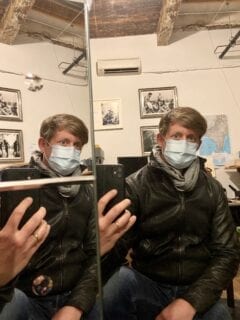Jugaad – Of Intimacy and Love
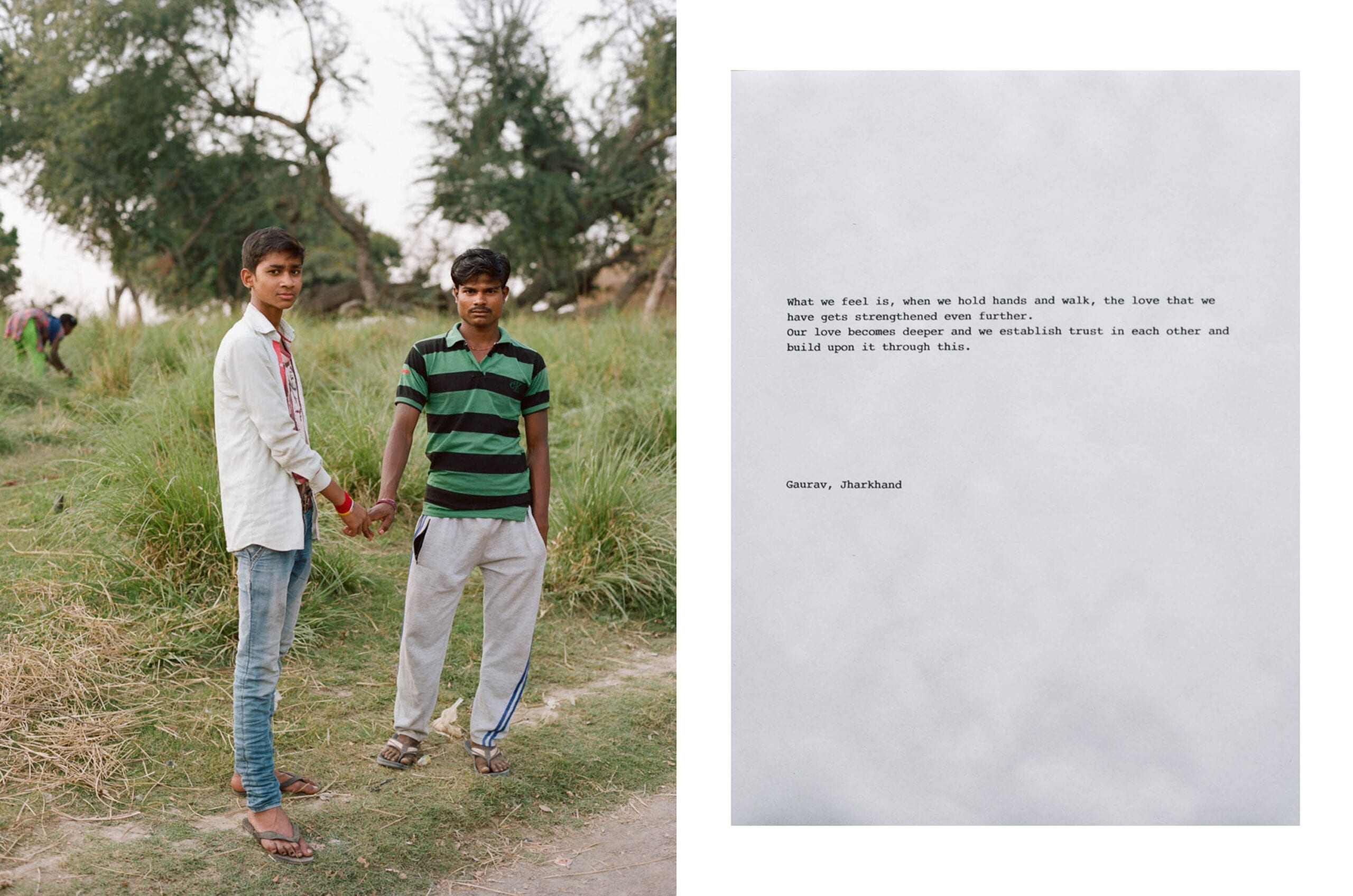
Soon after beginning my research to prepare ‘Jugaad-Of intimacy and Love’ I realised that my attempts to locate familiar identities in the public gestures rooted in India’s homosocial culture would only stand in the way of embracing the many subtle layers of intimacies my collaborators eventually began sharing with me.
QUOTE: “ What we feel is, when we hold hands and walk, the love that we have gets strengthened even further. Our love becomes deeper and we establish trust in each other and build upon it through this.” Gaurav.
For ‘Jugaad-Of Intimacy and Love’, I make photographic portraits that dialogue with quotes from informal interviews to explore the intersections of homo-social-culture, friendship and love between men in India.
I am especially interested in the impacts of patriarchy, ‘colonial masculinities’ and contemporary gender identity politics on the lives of my collaborators. I seek out collaborators from a broad range of identities, classes, castes, religions and locations. With some I connect through a small network of friends and supporters, some contact me on social media, while I meet others through fieldwork.
Implicating my own, inherently Western/queer gaze, my initial impulse to try and decode the gestures of affections has given way to documenting the many kinds of love and identities I encounter, whether hidden or in plain sight.The gestures of affection become a lens into larger issues of binaries, modes of human connectivity and the confluence of tradition and ‘modernity’.
Since 2017 I have worked in 13 states across India, making portraits (analog/medium-format) and recording over 100 conversations in 8 languages. The project is ongoing.
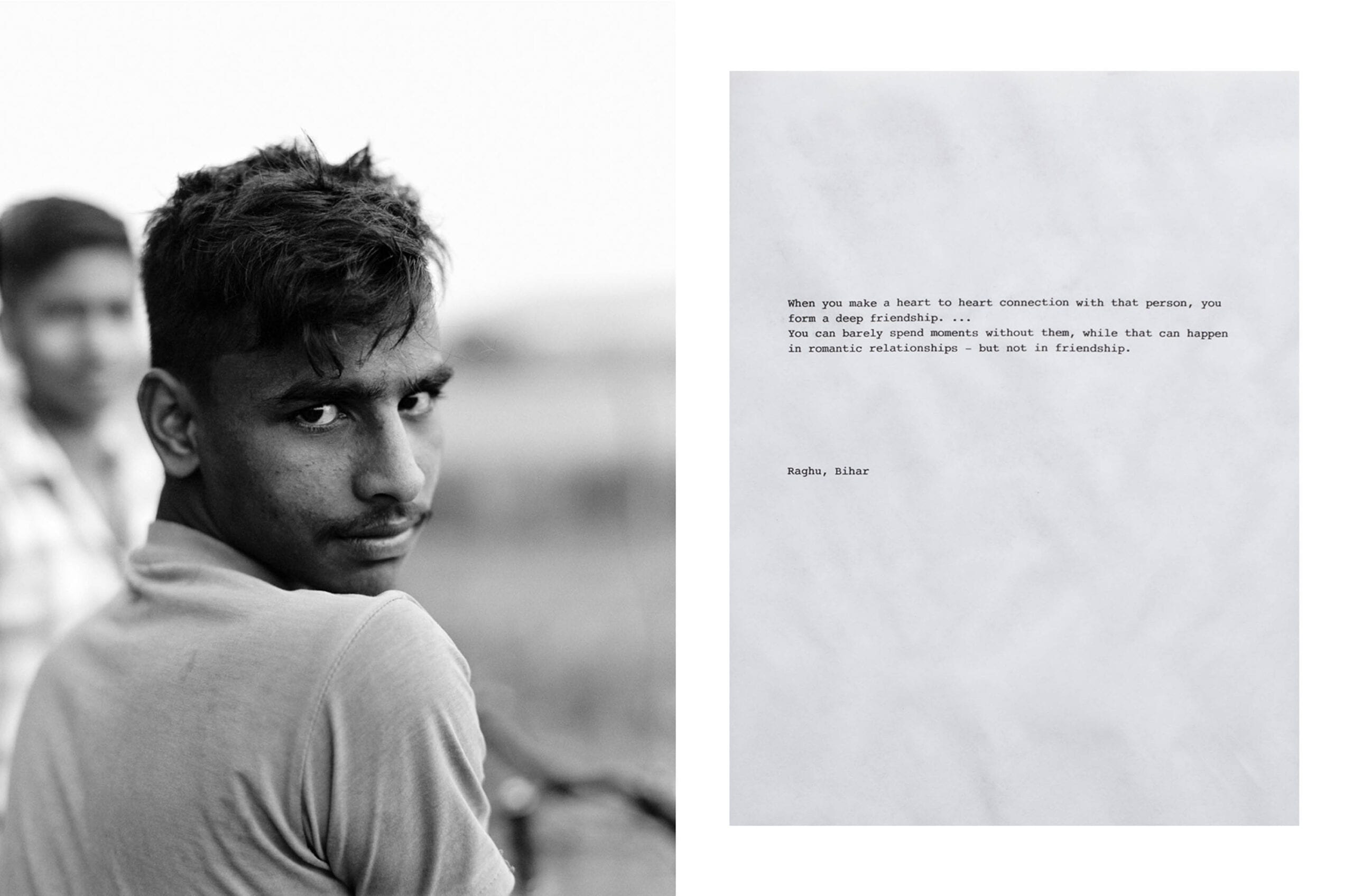
It appeared that in smaller towns and cities, men are less self-conscious about expressing their friendship through intimacies in public than in some of the more developed cities.
QUOTE: “When you make a heart to heart connection with that person, you form a deep friendship. … You can barely spend moments without them, while that can happen in romantic relationships – but not in friendship.” Raghu.
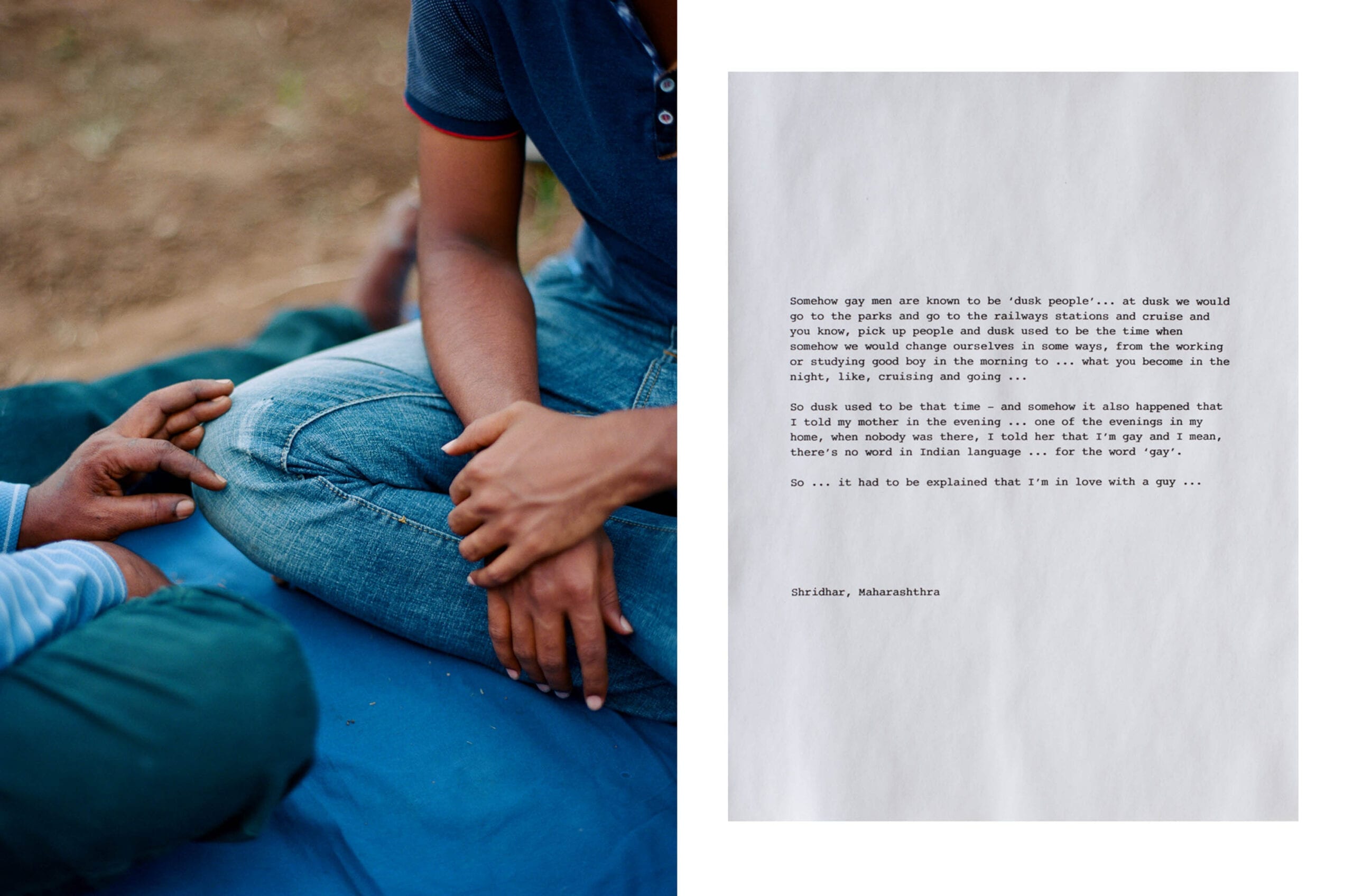
Somehow gay men are known to be ‘dusk people’… at dusk we would go to the parks and go to the railways stations and cruise and you know, pick up people and dusk used to be the time when some how we would change ourselves in some ways, from the working or studying good boy in the morning to …what you become in the night, like, cruising and going …
So dusk used to be that time-and somehow it also happened that I told my mother in the evening …One of the evenings in my home, when nobody was there, I told her that I’m gay and I mean, there’s no word in Indian language … for the word ‘gay’.
So … it had to be explained that I’m in love with a guy …
Sridhar
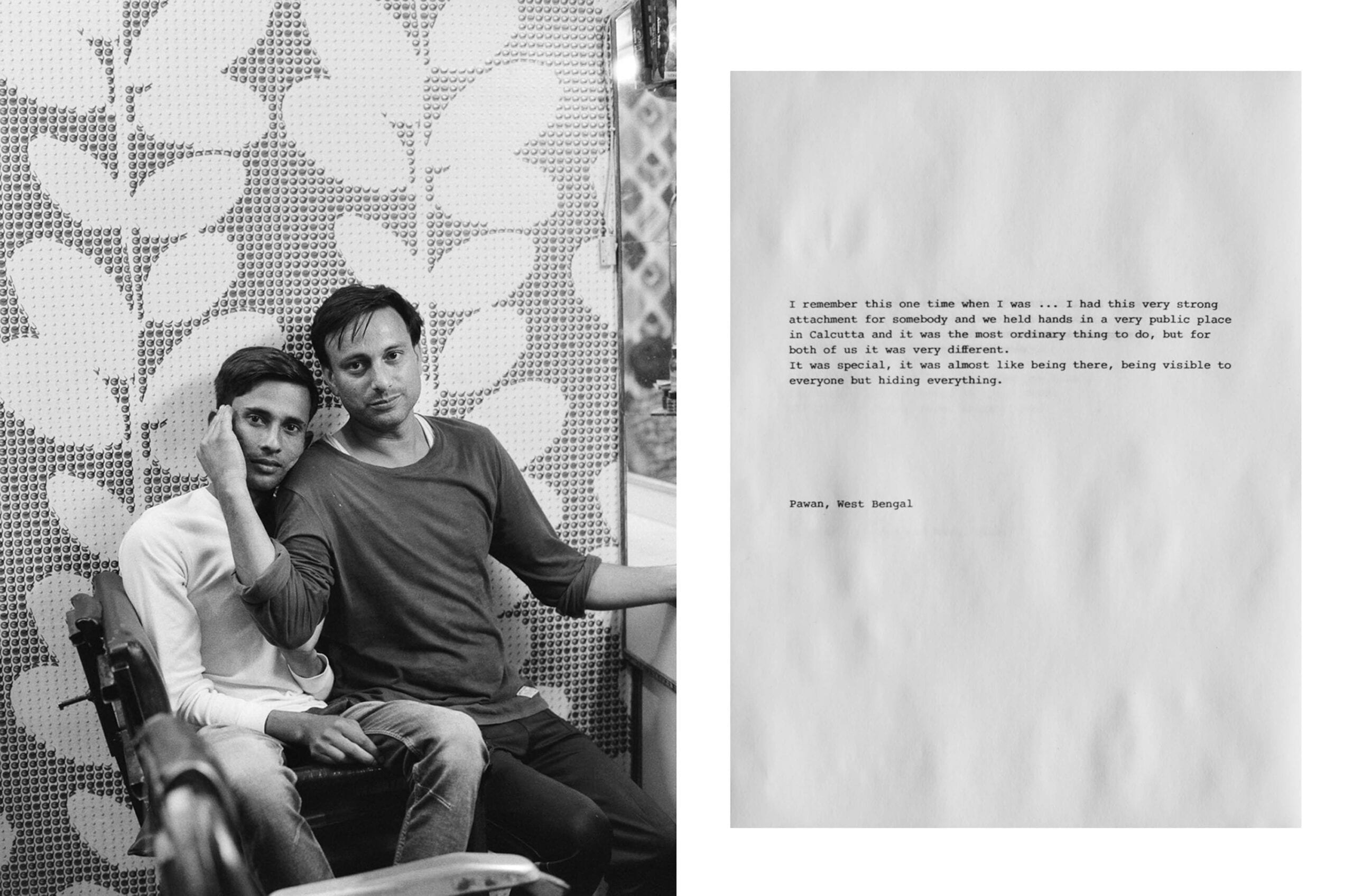
I saw Akhtar one afternoon in a small Punjabi town, waving excitedly at me with a big smile. Hours laterI found myself on a roof seeing him wave from a neighbouring roof where he was feeding his goats. I spent the next week photographing and filming him, his best friend and his family.
QUOTE: “I remember … I had this very strong attachment for somebody and we held hands in a very public place in Calcutta and it was the most ordinary thing to do, but for both of us it was very different. It was special, it was almost like being there, being visible to everyone but hiding everything.”
Pawan
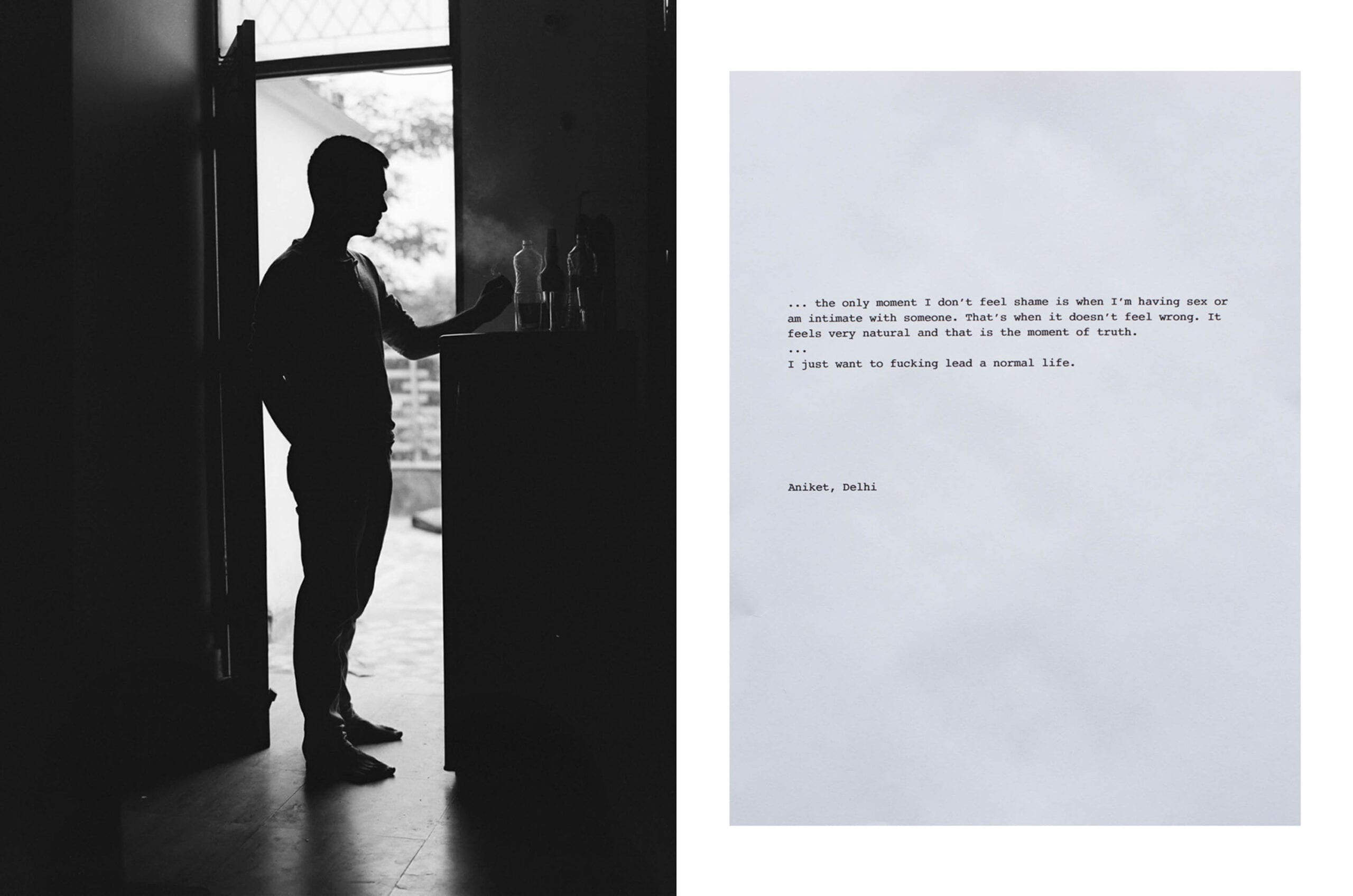
Many young men I have met struggle with mental health issues as they come to terms with their sexuality. Homosexuality was only decriminalised in September 2018.
QUOTE: “… the only moment I don’t feel shame is when I’m having sex or am intimate with someone. That’s when it doesn’t feel wrong. It feels very natural and that is the moment of truth. … I just want to fucking lead a normal life.”
Aniket
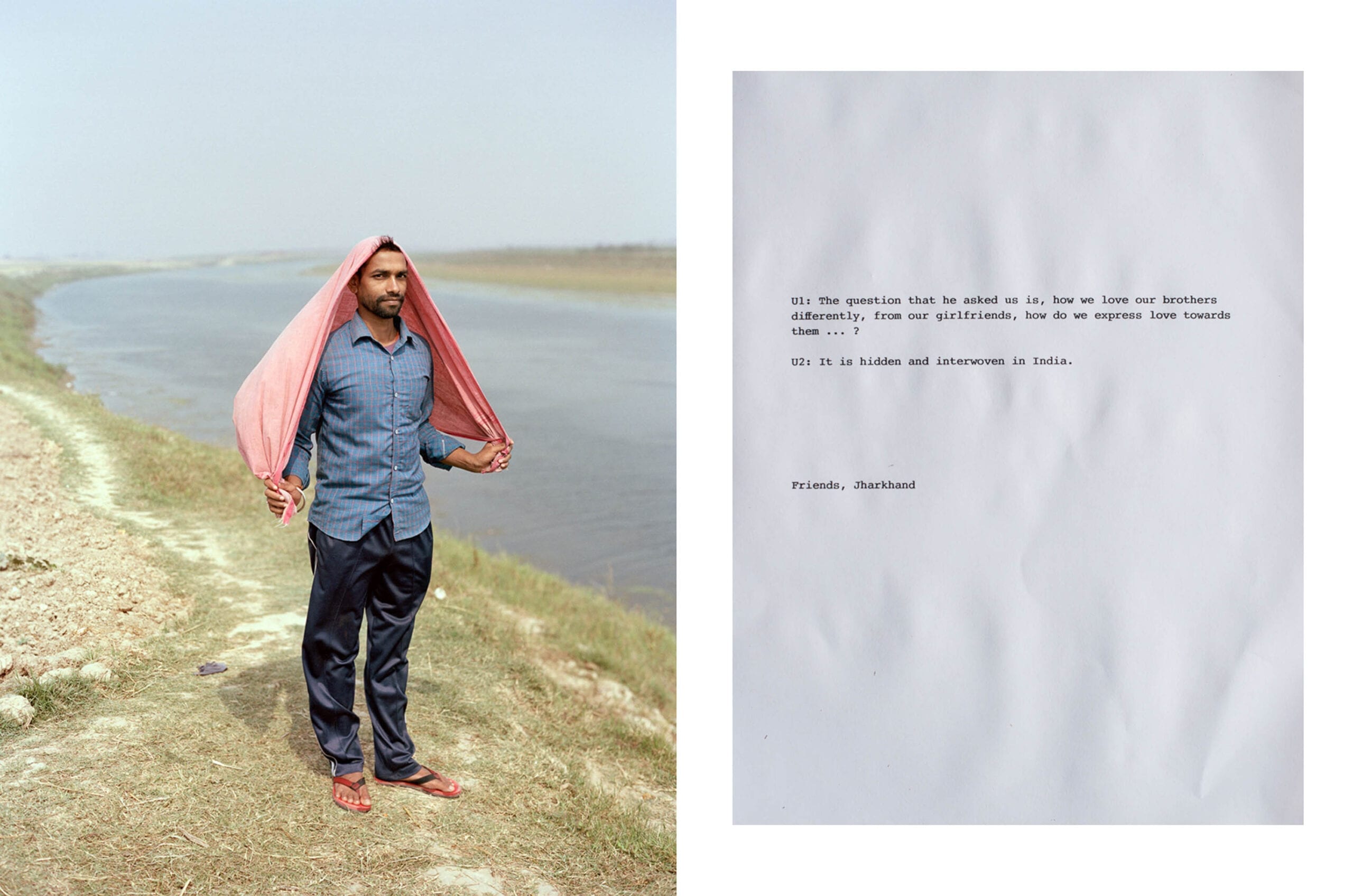
QUOTE: U1: “The question that he asked us is, how we love our brothers differently, from our girlfriends, how do you express love towards them … ?
U2: “It is hidden and interwoven in India.”
” Two friends”
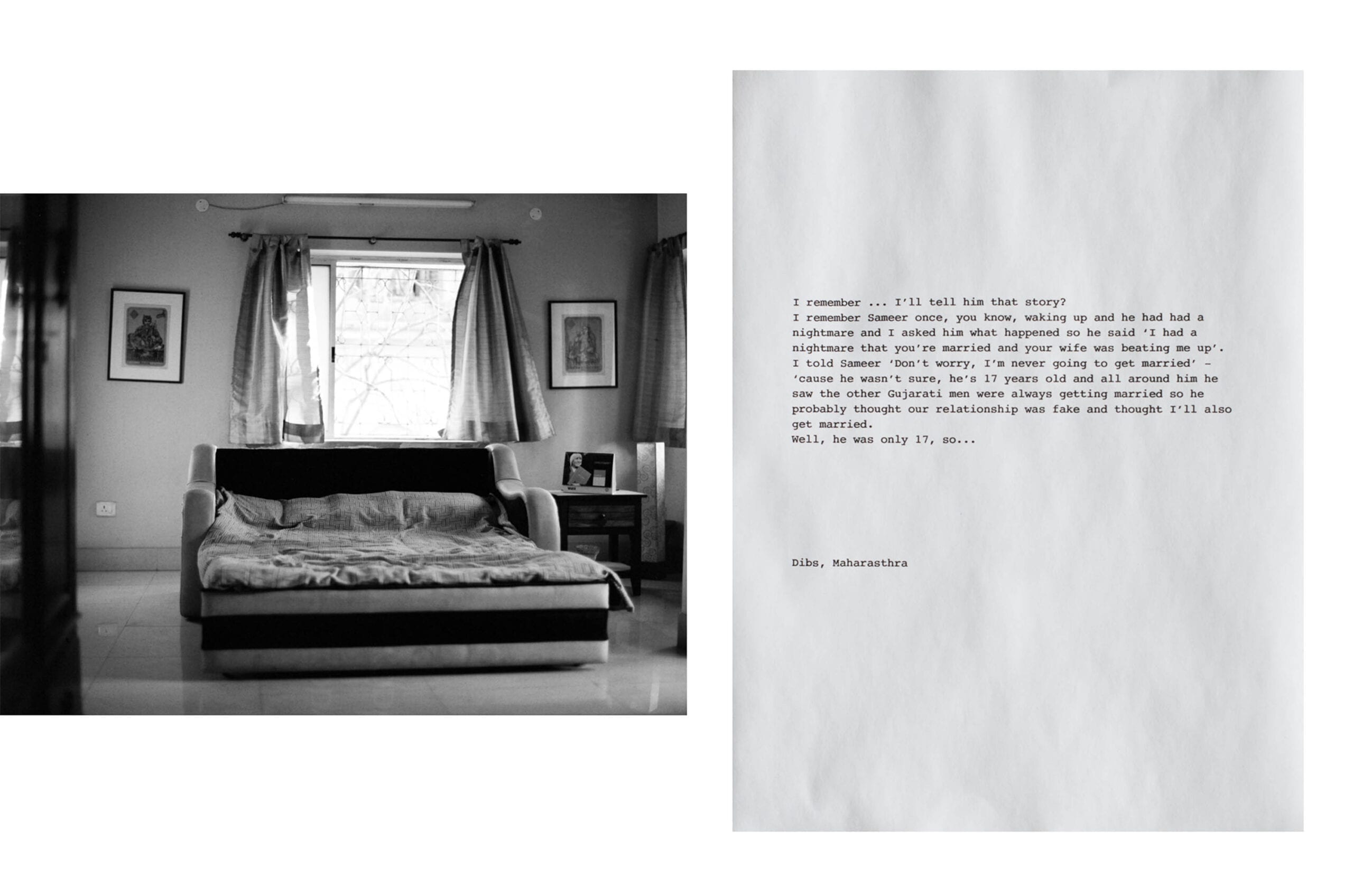
The journalist and his partner share this apartment half of the week, while they spend the other half of the week in their respective family homes to be with their parents. The hugely important role immediate and extended family plays in Indian society cannot be understated.
QUOTE: “I remember ”… I’ll tell him that story?
I remember Sameer once, you know, waking up and he had had a nightmare and I asked him what happened so he said I had a nightmare that you’re married and your wife was beating me up. I told Sameer, don’t worry, I’m never going to get married.”
’cause he wasn’t sure, he’s 17 and all around him he saw the other Gujarati men were always getting married so he probably thought our relationship was fake and thought I’ll also get married. Well, he was only 17, so”
Dibs, with Samir”

When we sat down to talk about Sudheers’ journey, Vidya announced: ‘I know everything, we can talk about anything.’
QUOTE:
Marc: What is the most important in friendship?
A: We know each other’s secret, like”. Each and every secret.
J: Trust. We love each other.”
Anmol and Jeremyah
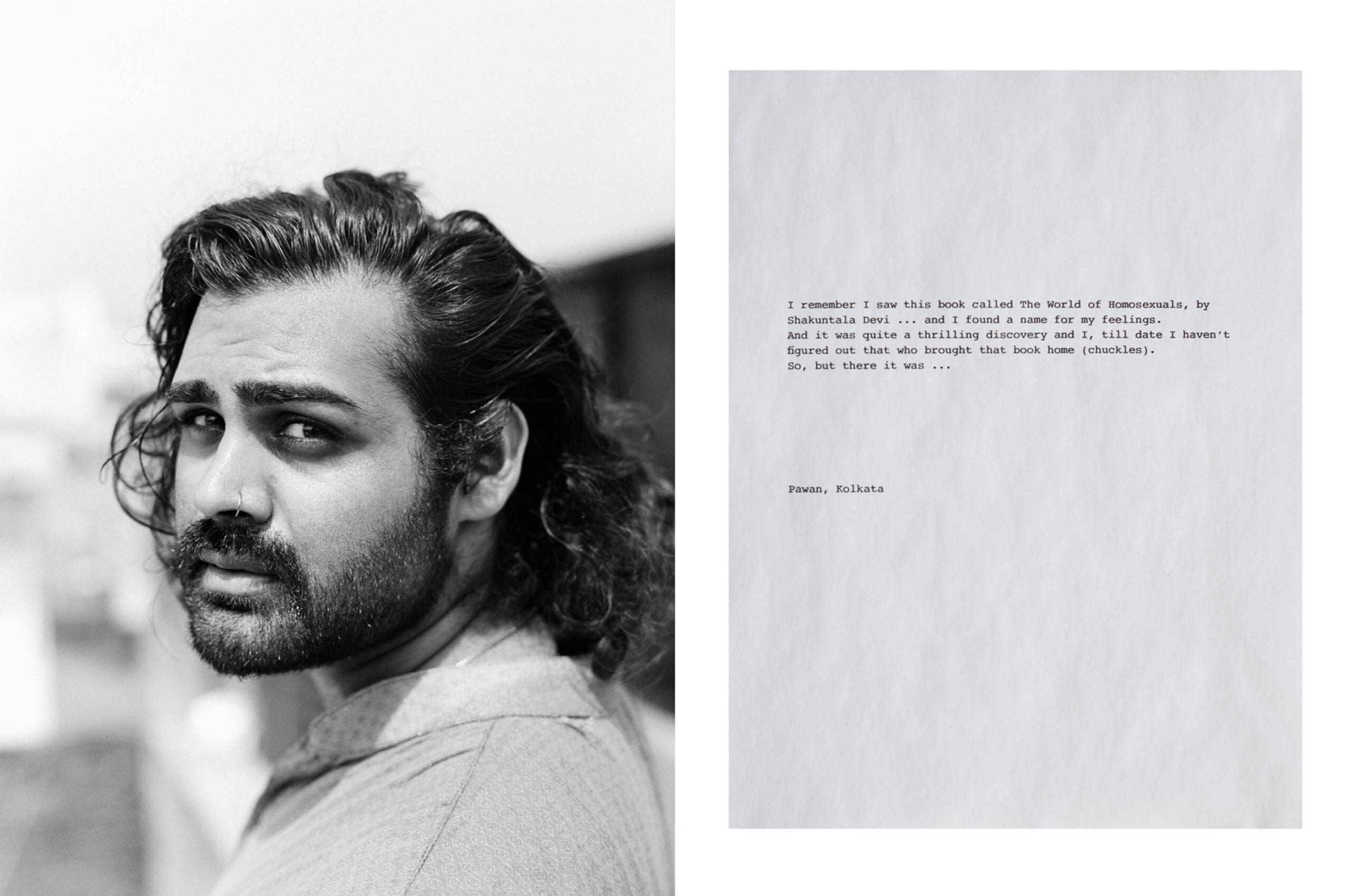
QUOTE: “It’s not labeled in any way, you just do it, that’s it-which was fantastic about the concept of same-sex love in India that you didn’t have any labels or … identities or categories … ”
Sridhar
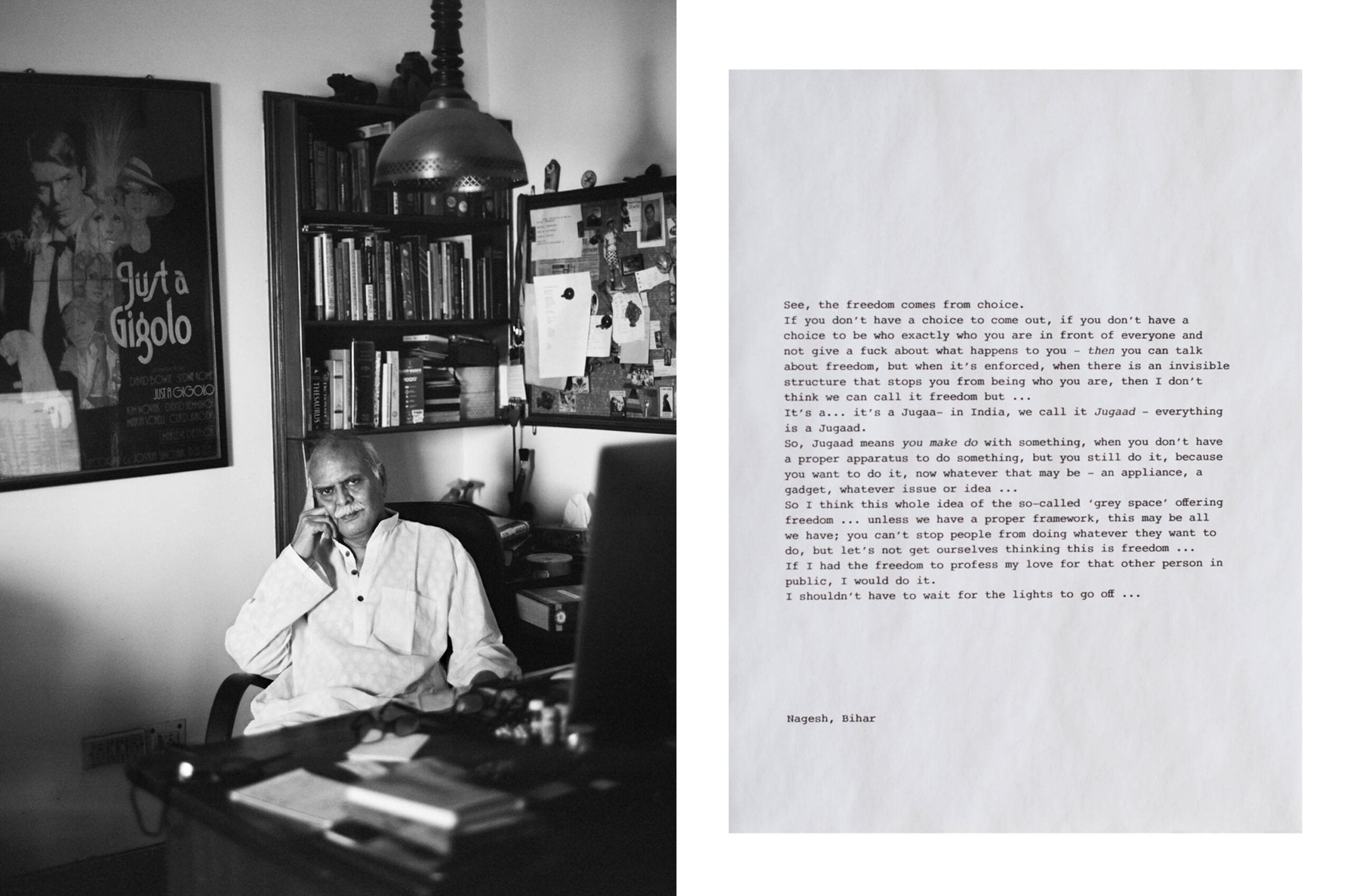
Saleem Kidwai is the co-author of the seminal book ‘Same Sex Love in India’, gathering texts tracing the presence of homosexuality in South Asia poetry and literature through hundreds of years.
QUOTE: “See, the freedom comes from choice, if you don’t have a choice, that’s not freedom, right? If you don’t have a choice to come out, if you don’t have a choice to be who exactly you are in front of everyone and not give a fuck about what happens to you. Then you can talk about freedom, but when it’s enforced, when there is, like, an invisible structure that stops you from who you are, then I don’t think we can call it freedom but it’s a Jugaad-in India, we call it Jugaad, like everything is a Jugaad.
So, Jugaad means when you make do with something, when you don’t have a proper apparatus to do something, but you still do it, because you want to do it, now whatever that may be”You can’t stop people from doing whatever they have to do, but let’s not get ourselves by thinking that is freedom-this is part old traditions, part lack of freedom, because if I had the freedom to profess my love for that other person in public, I would do it.”
Nagesh

